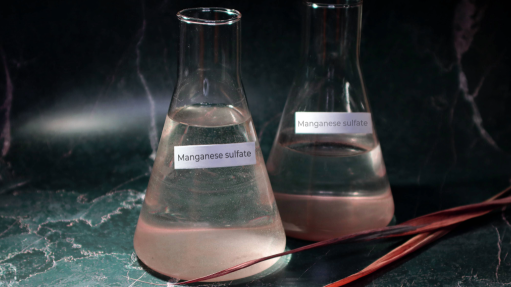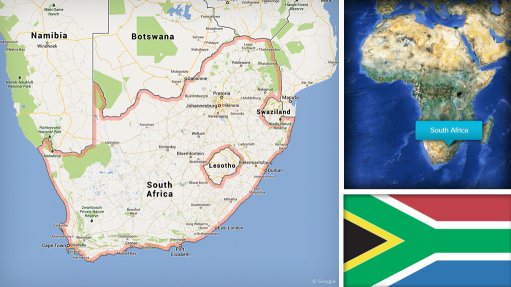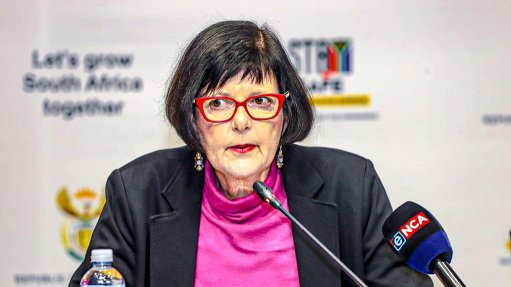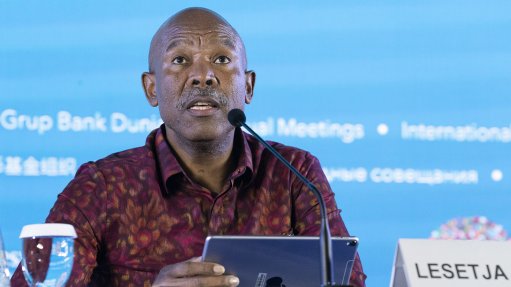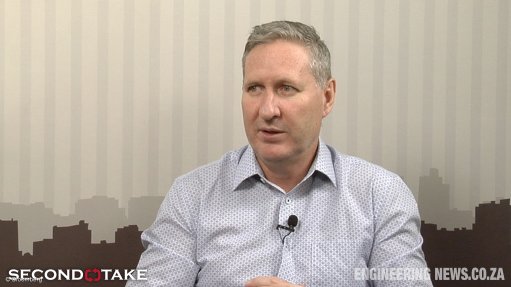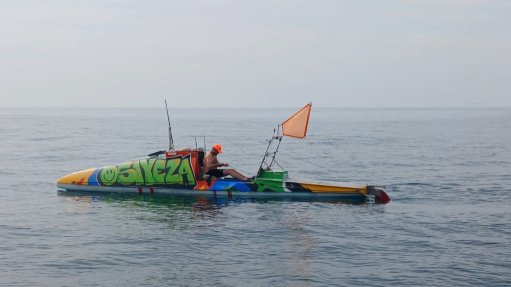CSIR researchers develop plastic pollution tools, policy considerations for South Africa
Researchers at the Council for Scientific and Industrial Research (CSIR) have unveiled findings from research they have been conducting into ways to reduce plastic pollution, which includes an evidence-based plastic management tool and policy considerations for South Africa to achieve its targets on plastic pollution.
Significantly and as a celebration of Women's Month, all the researchers who presented the findings were women.
CSIR Sustainability, Economics and Waste (SEW) research group principal researcher Professor Suzan Oelofse and her team, which included Professor William Stafford, Dr Valentina Russo, Professor Linda Godfrey and Plastics SA technical operations executive Annabé Pretorius, developed an evidence-based strategy tool for South Africa around reducing plastic pollution.
Their work, which followed on from the global 'Breaking the Plastic Wave' study in 2019 and in which the CSIR was involved, showed that South Africa's plastic consumption and associated waste and leakage into the environment is increasing by about 3% a year.
Three scenarios were investigated up to 2040, namely a business-as-usual scenario, one in which the Extended Producer Responsibility (EPR) targets are met, and a scenario where the economic and environmental trade-offs are considered to minimise costs and greenhouse-gas emissions.
In the business-as-usual scenario, if the trends from the baseline year 2020 are continued without intervention, there will be a near-doubling, or 76% increase, compared to 2020 levels, of the amount of plastic leaking into the environment, reaching almost 90 000 t a year by 2040.
In the second scenario if EPR targets were met, there would be a 33% reduction in the total pollution leaking into the environment by 2040 compared to the business-as-usual scenario, she said.
However, this would only serve to stabilise the amount of plastic pollution each year by 2040 at the same level as in 2020 and would not address leakage into the environment in general, said Oelofse.
"This clearly indicates that we need other strategies in addition to EPR."
Addressing plastic pollution comes at a cost, as reducing plastic production would result in job losses. The team's aim in the third scenario was to look at how South Africa could reduce plastic pollution, greenhouse-gas emissions and costs without losing jobs.
This meant that the team looked at what the trade-offs were in terms of reducing pollution and infrastructure costs and jobs, she said.
The third scenario combines several strategies, including reducing demand for plastics, increasing collection and recycling and improving safe disposal to sanitary landfills, which would lead to South Africa seeing a 63% reduction in the amount of plastic pollution by 2040, compared to the business-as-usual scenario by 2040.
"To achieve the third scenario, we must implement upstream, midstream and downstream interventions. Upstream interventions include decreasing demand by using less plastics by 2.57% a year, increasing collection by 4.85% a year, increasing recycling by 4.87% a year and increasing disposal to sanitary landfill by 3.36% a year," she noted.
The tool provided decision-makers with evidence-based positions to use in their planning to reduce plastic pollution in South Africa.
However, evidence-based strategies and responses to addressing plastic pollution were not a silver bullet. This was why the CSIR worked on many other projects, including providing input for negotiations for a globally binding treaty on plastic pollution, she highlighted.
Further, the CSIR signed a contract with the United Nations Environment Programme for a national plastic source, inventory and action plan for South Africa. This was developed as part of work for conservation organisation the World Wide Fund for Nature (WWF) South Africa, as South Africa was one of 20 countries contributing to a global inventory on plastics, she said.
The CSIR team also worked with WWF South Africa and applied for funding from the global environmental facility to address plastic pollution in the food and beverage industry. This will kick off early in 2025.
Meanwhile, CSIR SEW researcher Dr Taahira Goga, as part of her doctoral research, identified that there is a need to change the design of plastic products to improve the use and reuse of plastics in South Africa.
Rather than be addressed farther down the supply chain, the change to address the post-consumption phase needed to take place higher upstream, she said.
"The redesign of products is necessary because fundamental to the effective reuse of the materials in a product is that it must be designed for this purpose," she emphasised.
Consequentially, this would also fundamentally change upstream and downstream processes in the plastics value chain.
Additionally, recycling of materials is the final stage of ensuring materials are used in the economy for as long as possible.
"The highest possible value that can be gained from a material is if it is in the lifecycle loop as long as possible, and recycling consumes more resources than reuse, for example. Therefore, repair and remanufacturing is more beneficial, if viewed from a consumption of resources perspective," said Goga.
As part of her analysis, she investigated the impact of three individual strategies, namely demand moderation, reuse and recycling, and also looked at their combined impact.
While there were moderate gains from implementing individual strategies, the greatest gains modelled were from a combination of the three, she said.
"Important to note is that the implementation of the combined strategies showed the greatest impact not only relative to the baseline, but also to the total for 2018 (the year with the most recent and accurate data). This means that a combination has a greater potential benefit to reduce the amount of plastic pollution compared to 2018," she highlighted.
More than 60% of CO2 associated with the plastics industry is from polymer production.
In terms of decarbonisation, a combination of the three strategies would also yield the greatest benefit, with an estimated 38% reduction of CO2-equivalent in the industry to ten-million tonnes in 2035 from 16.9-million tonnes in 2018, her research shows.
"Although individual strategies display benefits to certain environmental indicators, the combination of circularity and decarbonisation in the plastics sector is projected to deliver an immediate improvement in material use and environmental indicators, potentially yielding a final improvement of 25% to 40% by 2035."
Implementing greater circularity and recycling in tandem should enable the country to meet its 2025 to 2030 target of reducing plastic pollution by 40%, she added.
Comments
Press Office
Announcements
What's On
Subscribe to improve your user experience...
Option 1 (equivalent of R125 a month):
Receive a weekly copy of Creamer Media's Engineering News & Mining Weekly magazine
(print copy for those in South Africa and e-magazine for those outside of South Africa)
Receive daily email newsletters
Access to full search results
Access archive of magazine back copies
Access to Projects in Progress
Access to ONE Research Report of your choice in PDF format
Option 2 (equivalent of R375 a month):
All benefits from Option 1
PLUS
Access to Creamer Media's Research Channel Africa for ALL Research Reports, in PDF format, on various industrial and mining sectors
including Electricity; Water; Energy Transition; Hydrogen; Roads, Rail and Ports; Coal; Gold; Platinum; Battery Metals; etc.
Already a subscriber?
Forgotten your password?
Receive weekly copy of Creamer Media's Engineering News & Mining Weekly magazine (print copy for those in South Africa and e-magazine for those outside of South Africa)
➕
Recieve daily email newsletters
➕
Access to full search results
➕
Access archive of magazine back copies
➕
Access to Projects in Progress
➕
Access to ONE Research Report of your choice in PDF format
RESEARCH CHANNEL AFRICA
R4500 (equivalent of R375 a month)
SUBSCRIBEAll benefits from Option 1
➕
Access to Creamer Media's Research Channel Africa for ALL Research Reports on various industrial and mining sectors, in PDF format, including on:
Electricity
➕
Water
➕
Energy Transition
➕
Hydrogen
➕
Roads, Rail and Ports
➕
Coal
➕
Gold
➕
Platinum
➕
Battery Metals
➕
etc.
Receive all benefits from Option 1 or Option 2 delivered to numerous people at your company
➕
Multiple User names and Passwords for simultaneous log-ins
➕
Intranet integration access to all in your organisation






